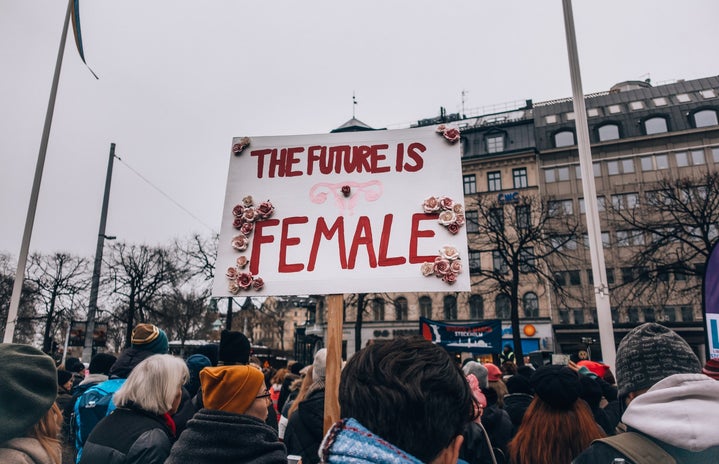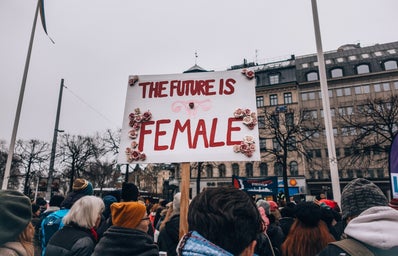Trigger Warning: Mentions of sexual assault and abortion.
BoJack Horseman is by far, one of the smartest shows I have ever watched. That says a lot considering it is essentially an animated show about an anthropomorphised horse going through an existential crisis. Although the show is centered around its titular character, Diane Nguyen is a standout character in her own right. Diane grapples with being a third-wave feminist and what that means exactly. I have been grappling with that question as well and seeing a character such as Diane on screen was refreshing. Limiting it down to only a few episodes wasn’t easy, but here are the instances in which I felt Diane Nguyen was a feminist icon that we could relate to.
Before we go ahead, please be advised that there are mild spoilers ahead for any potential BoJack Horseman fans out there. I won’t be giving away any key plot points, but I will be using some plot points as examples.
1. The face of depression (Season 6, Episode 7)
This episode tackled two problems at once. The first being the pedestal we put self-proclaimed feminists on. Feminists are expected to be strong and relentless in order to be taken seriously. They know what they want and they are certainly not pushovers. This is not Diane. Let’s face it, she is a bit of a mess, but it comes across as quirky and it’s always the butt of the joke in the series. It isn’t until we find out about Diane’s struggle with depression and anxiety that we realise that she is going through something way more serious than occasional stress. Diane is hesitant to take any anti-depressants as it makes her gain weight. She worries about what people will say and think, and this makes her even more anxious. This leads me to the second problem this episode addressed. Weight gain is seen as something that is unhealthy and preventable. However, by the end of the episode, we see that Diane has gained a significant amount of weight, insinuating that she has started taking her anti-depressants. Despite that, she seems to be in a much better place. Her weight gain is symbolic of becoming healthier. Women are always hounded for the way that they present themselves. We are expected to always look and act a certain way to be accepted. Seeing Diane’s progression emphasises the importance of a healthy mind over an ideal body type. Diane’s journey reminds us that strength is also found in vulnerability.
2. Hank after dark (Season 2, Episode 7)
Hank Hippopopalous is a beloved TV show host that is a giant in the television industry. He also has a history of sexual assault allegations against him. These allegations are well known in the industry but due to his status, it’s swept under the rug. When Diane brings them to the public, she gets all the backlash, not Hank. In the wake of the “Me Too” movement, we are well aware of the power we have when multiple women speak up against sexual assault and abuse. The keyword here is “multiple”. We still live in a world where one accusation is not enough to bring abusers to justice. Third-wave feminism is generally ridiculed and viewed as “unnecessary”. This episode debunks the idea that ‘feminism is no longer needed’ as there is still so much work we need to do to ensure that each woman’s voice is heard individually. Speaking out against injustice of any kind can feel scary and intimidating, no matter what you’re advocating for. Although Diane is unsuccessful in ensuring Hank’s downfall, her pursuit to take on a figure as influential as him shows that silence is never an option.
3. Brrap Brrap Pew Pew (Season 3, Episode 6)
It’s crazy that women are still fighting for reproductive rights in 2023. This episode of BoJack Horseman was as ambitious as it was controversial. However, it was still a statement that needed to be made. Diane is married to Mr. Peanutbutter, but when she finds out that she is pregnant, she decides to get an abortion. I was watching this episode with a friend of mine and they were a little confused afterward. Their main argument was that she was a married and financially stable woman. Why would she need to get an abortion? My answer was simple: Because she wants to. Reproductive rights aren’t about giving women access to abortions only during dire circumstances. It’s about giving women access to abortion PERIOD. Diane makes a decision that is difficult for her despite knowing that she does not want kids. However, her actions make a statement that she, like every other woman, does not owe anyone an explanation for what she chooses to put her body through.
4. Her friendship with BoJack Horseman
I’m sure we’ve all felt like a “bad feminist” at some point. I get that feeling when I’m nodding my head to a degrading, yet super catchy rap song. Diane exhibits “bad feminist” energy through her friendship with BoJackHorseman, which is observed throughout the entire series. BoJack is the epitome of a toxic male. Why then does Diane have such a close friendship with him? Sure, he has redeemable qualities and the question as to whether he is malicious or just horribly misguided is up to you to decide. He is still a narcissist who constantly manipulates women and exerts his power over them. Nevertheless, Diane maintains a close friendship with him. However, rather than being complicit in BoJack’s behaviour, she constantly calls him out on it. When she finds out about his past, she confronts him. There’s no such thing as being a “bad feminist”. We are just human. Their relationship seems hypocritical and that’s because it is. It holds a mirror to ourselves allowing us to see how we often entertain behaviour that goes against our beliefs. The trick is knowing how to navigate this seemingly inescapable patriarchy. Diane knows when to help Bojack instead of scolding him. She knows when to scold him instead of helping him. She also knows when to end her friendship with him.
Navigating third-wave feminism is tricky, but analysing Diane Nguyen’s character is a great place to start. You might feel like I did, that you’re “doing feminism wrong”. Feminism is needed now more than ever, and to quote Roxanne Gay, “I’d rather be a bad feminist than to not be one at all.”


